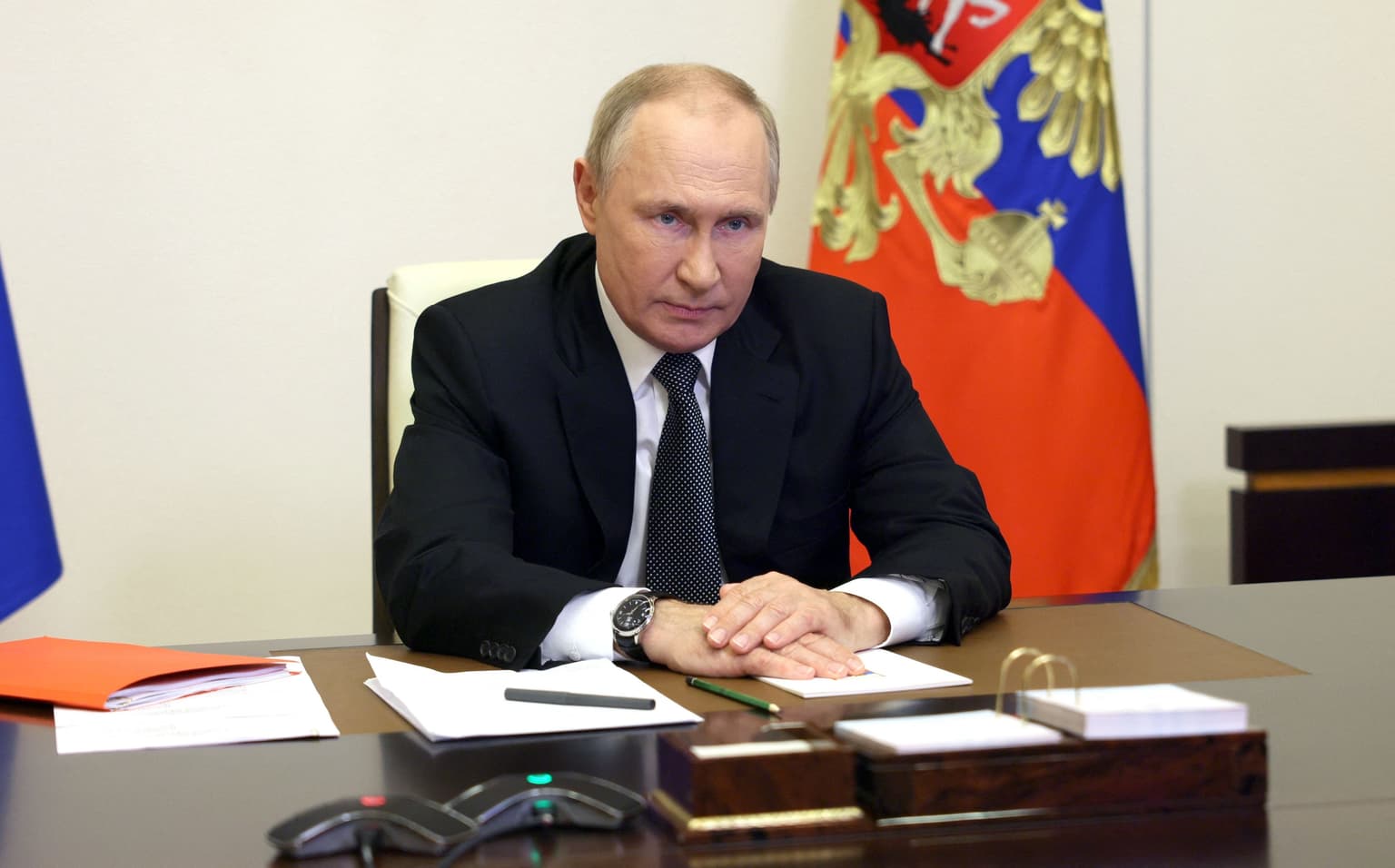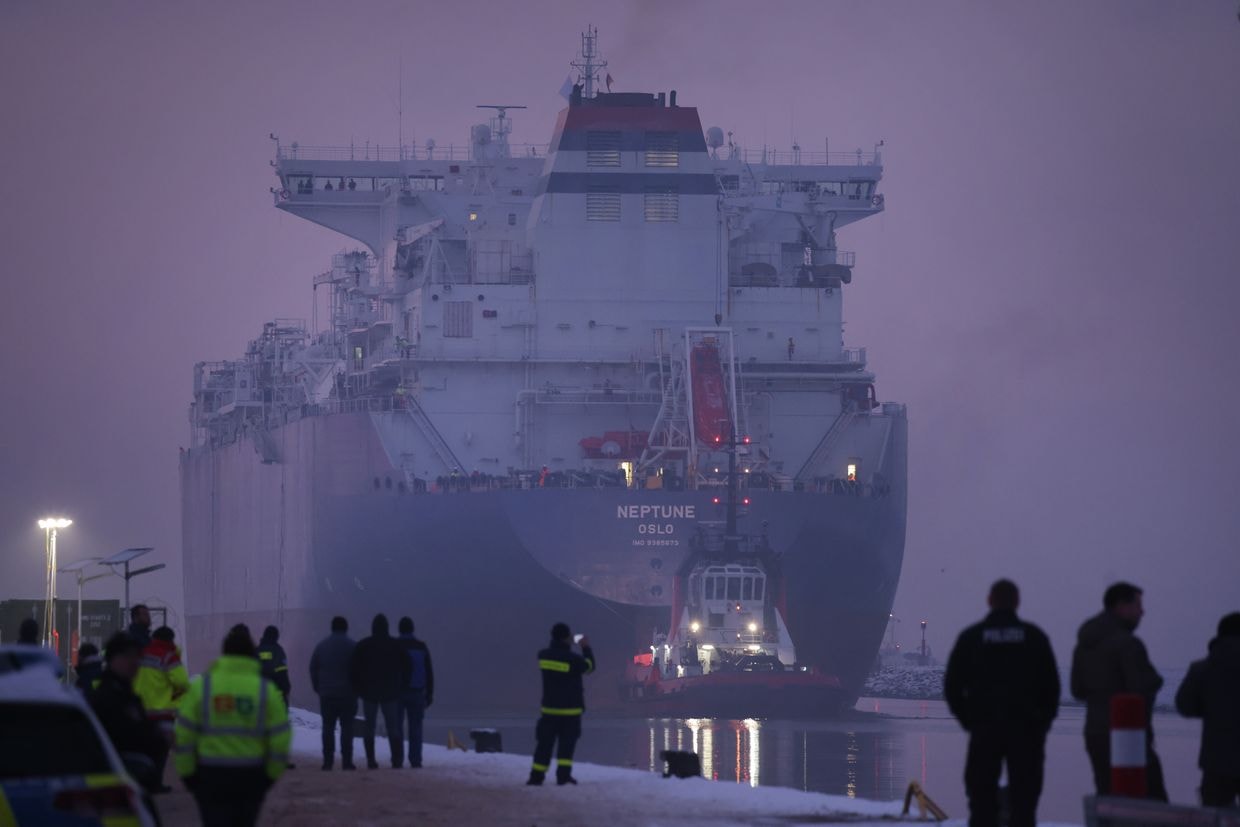Nataliya Bugayova: Putin on track to disappoint multiple competing factions in Russia

Editor’s Note: This is an analysis by Nataliya Bugayova, a Russia Research Fellow at the Institute for the Study of War (ISW), a U.S.-based defense and foreign affairs think tank. This piece was originally published by the ISW on Oct. 18, 2022. The Kyiv Independent has republished the analysis with permission. The opinions expressed in the op-ed section are those of the authors and do not purport to reflect the views of the Kyiv Independent.
Russian President Vladimir Putin is consolidating his power projection system around those willing to pursue his unchanged maximalist goals in Ukraine.
He is increasingly spotlighting and relying on a smaller cadre of highly devoted followers in his power circles and a silent majority in the Russian population who simply comply.
Putin is on a path to disappoint all elements of his power projection system. Putin is on a trajectory to disappoint the extreme nationalists rallying around the idea of a total victory in Ukraine, which he cannot deliver. He is also on a trajectory to disappoint core elements of his regime who want a powerful Russia for selfish and ideological reasons, as Putin risks destroying Russia’s remaining strength and ability to project power globally in pursuit of his objectives in Ukraine. Putin’s value proposition to both his overt and latent support bases among the population is diminishing, while his demands of them are growing.
None of this makes him imminently vulnerable. Western leaders should not underestimate Putin’s ability to get his regime or the Russian people “in line” nor Russia’s ability to normalize a new worse reality. Russian military failures, however, will worsen the schism within Putin’s inner circle and likely increasingly require Putin to focus on domestic issues. The West thus must help Ukraine make Russia fail on the battlefield faster.
Putin is “crystallizing” the Russian system—the people, the regime, and the information space—around his maximalist objectives in Ukraine and those who will pursue them for ideological or practical reasons.
The gap between Putin’s goal of controlling Ukraine and Russia’s diminishing capability to do so is growing and increasingly obvious to his base. Putin is neither addressing the systemic issues that led to the erosion of Russian capabilities nor is he trying to appease his entire base or change their perception of the war in Ukraine. He would likely fail at both if he tried—the Kremlin’s reality problem in Ukraine is too big for any propaganda to overcome, while Russia’s capability gap requires addressing compounded mistakes of the past 20 years, not just the past eight months.
Instead, Putin is leaning on the core of his power projection system—a key set of ideas and those who will follow.
- Putin is doubling down on his central goals and narratives, including securing complete control of Ukraine, sustaining a strong centralized Russia, and promising to “collapse the Western hegemony,” as he reiterated in his Sept. 30 speech.
- Putin is spotlighting extreme nationalists in his regime willing or seemingly willing to pursue Putin’s goals in Ukraine regardless of the cost. Putin is catering to the nationalist community, which encompasses all who seek a powerful Russia and Russian victory in Ukraine. He is elevating—at least publicly—its extreme elements, such as Wagner PMC sponsors Yevgeny Prigozhin and Chechen leader Ramzan Kadyrov. The long-term benefit and loyalty of both to Putin are questionable, but they provide limited short-term benefits by contributing fighters to the war in Ukraine and serving as anchors in the information space for those nationalists who want to rally around the idea of winning in Ukraine at all costs. Putin almost certainly understands that he needs to retain his core regime elements, who also want victory but not at the expense of Russia’s entire power and global standing, which sustains the personal power of many of those core regime elements. Putin’s decision not to cave to some of the extreme nationalists’ demands, including calls to fire more military officials, indicates that he is trying to maintain support of various factions of his base.
- Putin is orienting on those elements of the Russian population who will get in line—regardless of their beliefs. Putin’s mobilization order is selecting precisely for this type. While some Russians fled, many stayed and have been marching obediently—for reasons ranging from conviction to fear—as Russian priests and musical bands send them off to Ukraine. The scale of Russian internal resistance to mobilization is opaque, but the rate of Russian men fleeing Russia has slowed. The Russian bureaucracy—as ugly and ineffective as it is—is working to execute Putin’s mobilization order.

Head of the Chechen leader Ramzan Kadyrov (R) speaks with Russian President Vladimir Putin at the Novo-Ogaryovo state residence outside Moscow, on Aug. 31, 2019. (Getty Images)
Putin’s logic may be to rely on a smaller but more committed cadre in Russia’s power circles and count on the obedience of the remaining general population to stay in the game in Ukraine.
Putin likely assesses that he cannot back down because doing so would cause Russia to lose its territorial gains in Ukraine, which Russia will not be able to retake in the short term, if ever. He is throwing bodies at the problem to hold Russian-occupied territories in Ukraine—even while perhaps realizing that this comes at the expense of Russia’s long-term strength. He likely hopes to win time to build up Russia’s military capability to the point when Russia can restart advances in Ukraine and bets that Russian commitment to the conflict will outlast that of the West.
“Crystallization” worked for Putin in the past.
Over the years, Putin consolidated his regime around a small circle of powerbrokers who subscribed to Putin’s increasingly assertive narrative. Most of them came from Russia’s security services and have worked with Putin for decades. With respect to the population, Putin’s authoritarianism has grown over the course of his rule. While some Russians protested (and were often silenced), many got in line. Each time Putin tightened his grip on power, most of the Russian population and the Kremlin’s inner circles normalized a new and often worse reality.
This time, however, Putin is attempting to crystallize the system around increasingly conflicting objectives, introducing a schism and risking collision with his own base.
For years, Putin’s objectives remained the same, namely: preserving his regime, reestablishing Russia as a great power, regaining control over Ukraine, and undermining the influence of the United States and NATO.
He rallied the population and his regime around these goals for 20 years. Putin has been proselytizing the idea of a great Russia, while stripping Russia of its real power through his kleptocratic rule and ill-planned and insufficiently resourced ventures, like his full-scale invasion of Ukraine.
The last eight months demonstrated that many Russians do, in fact, care about Russia being perceived as powerful. Russians became the most vocal and upset not about Russian atrocities or even Russian casualties but about Russian battlefield setbacks—be it Ukraine forcing Russia to withdraw from the Kyiv axis, Ukraine sinking the Russian Black Sea flagship Moskva, Russia’s disastrous attempted Siverskyi Donetsk River crossing, or the recent wave of Russian operational defeats.
Putin’s attempt to double down on his goals in Ukraine despite the obvious risks suggests he may have tied his regime’s survival to a victory or semblance of victory in Ukraine—potentially at the expense of Russia’s long-term strength.
This doubling-down presents four key issues for Putin:
- Putin has created a requirement to constantly provide “victories” to the extreme nationalists, but has limited ability to do so;
- Putin is on a collision course with elements of his regime that may not want to wreck Russia’s remaining strength in pursuit of Putin’s objectives in Ukraine;
- Putin is increasingly projecting weakness through repeated bad decisions; and
- Putin’s limited value proposition to his base among the Russian population is diminishing.
First, Putin will need to constantly feed the appetite of the extreme nationalists for victories, either real or imaginary, but he has a limited ability to do so.
Russian nationalists are trying to get Russia back on track to “winning” in Ukraine after their overdue epiphany about Russia’s failures. Some, like Russian propagandist Vladimir Solovyov, want “blood” and call to punish the parties responsible for Russian setbacks. Military bloggers call for concrete solutions; others, like RT head Margarita Simonyan, are trying to fix what they characterize as unfair mobilization practices. They all cheered the indiscriminate Russian missile strikes on Ukraine on Oct. 10, effectively celebrating mass murder. Some even said that the strikes were not enough. Many praised the appointment of Sergey Surovikin as the new commander of the Russian operation in Ukraine. Kadyrov, Prigozhin, and many nationalists framed Surovikin as a strongman and a step in the right direction—despite Surovikin not being fundamentally different from his peers.
Putin will need to feed this demand for victories, which he helped cultivate for years, but his escalation ladder is limited. Even the most extreme options are unlikely to bridge the gap between Russia’s capabilities and Putin’s unchanged intent to control Ukraine. Russian nationalists are in for a disappointing surprise: attacks on Ukrainian infrastructure and scapegoating the Russian Ministry of Defense (MoD) may provide short-lived illusions of action but not lasting effects on the battlefield. Russia is unlikely to win this war so long as Ukraine’s will to fight persists and is backed by sustained Western support.

Russian President Vladimir Putin (L) and Russian Defense Minister Sergei Shoigu (C) meet soldiers during a visit at a military training center of the Western Military District for mobilized reservists, outside Ryazan, Russia, on Oct. 20, 2022. (Getty Images)Second, Putin is on a collision course with the core elements of his regime whose personal power is linked to Russia’s and who may not wish to sacrifice Russia’s entire long-term strength in pursuit of Putin’s maximalist objectives in Ukraine.
Putin’s invasion of Ukraine is eroding Russia’s perceived and real power.
Russia’s power was already limited, as ISW assessed in 2020. The invasion of Ukraine further degraded Russia’s military, economic, and technological capability, along with the Kremlin’s global influence. Russia has expended some of its best equipment and manpower (the most willing and able) in the war in Ukraine. It will take years to replenish these losses, especially among officers. The war revealed major limitations in the Kremlin’s influence in the former Soviet Union. Belarus is Russia’s co-belligerent in this war. However, Putin has never managed to force Lukashenko to fully commit to fighting for Russia in Ukraine—despite Putin’s constant efforts to do so and despite the Kremlin’s years of investments, at substantial financial cost, into control over Belarus.
Russia’s global value proposition has decreased—be it the weapons or technology Russia can sell, the assistance it can provide, or the threats it can make. Russia’s energy leverage remains, but Putin has already played this card, at least partially, triggering Western efforts to diversify away from Russia and likely eroding Russia’s energy leverage in the long run.
The power of some in Putin’s regime is tied to Russia’s.
Some in Putin’s regime likely have long understood that Putin’s invasion may strip Russia of its long-term strength. Some may not be willing to pay this price not only for ideological reasons but also because their identities and personal power are at least partially tied to Russia preserving some resemblance of strength. One of Putin’s biggest value propositions when he came to power in the 2000s was his ability to restore the prestige and power of Russia’s siloviki (Russia’s security services). A small core circle of siloviki in Putin’s regime was elevated the most and has stayed with him for decades. Putin’s current trajectory risks diminishing their power if it erodes Russia’s strength and any prospect of restoring it.
The elements of Putin’s regime who may not wish to sacrifice Russia’s entire long-term strength in pursuit of Putin’s objectives in Ukraine may be few and those that exist may never push back. But Putin cannot afford to alienate them and rely solely on extreme nationalists. Putin also likely agrees with this wing of his regime on an intellectual level. Reinstating Russia as a great power has been Putin’s long-standing objective, after all. He will face an increasing challenge to preserve their support as the war continues to erode Russia’s capabilities. Observers should also not underestimate the ability of core elements of his regime to hit back against rival factions.
Finally, the desire to restore “a strong Russia respected by the West” after the Soviet Union collapsed was a core want among Russian power circles and the general population that helped solidify Putin’s power in the first place. This intent will likely transcend Putin and shape whatever regime replaces him.
Third, Putin has started to project weakness, and his efforts to consolidate his power projection system may make this issue worse.
Putin’s “get in line or get out” approach further removes him from knowledge and competence because he is not selecting for either. His knowledge gaps, which are significant, as indicated by the plan to take Kyiv in three days, will only grow. Scapegoating the Russian MoD and expending more officers in Ukraine while elevating people like Kadyrov and Prigozhin will degrade the Russian military’s already limited institutional competence.
Competence and knowledge matter for more than just Russian attempts to reverse the battlefield momentum. The perception of cluelessness can indicate weakness. And a perception of weakness can be lethal in a system that is built solely on the premise of strength.
Finally, Putin’s limited value proposition to his base within the Russian population is diminishing.
Putin’s social contract with the Russian population has varied but always included a promise to provide stability and restore Russia’s “greatness” in exchange for Russian liberties. Putin’s ability to deliver on both stability and greatness is diminishing, while his demands of his base are growing. He is providing only negative value to those Russians who do not support him but whom Putin is still using to fight this war.
None of these risks make Putin instantly vulnerable, but the accumulation of risks over time may.
All these groups in Putin’s regime and within the Russian population may stay passive and may never reach a point where they break with Putin, regardless of how badly Kremlin policies conflict with their interests. The West should not underestimate the resilience of Putin’s regime or the ability of Russians to get in line and normalize an increasingly worse reality.
However, all these friction points accumulate risk for Putin.
Russia’s military setbacks will likely worsen the schism within Putin’s regime.
Those who seek a total victory in Ukraine will eventually realize that Putin is unlikely to deliver it. Those who care about Russia preserving at least some of its power and global standing for sake of their own power likely already realize that the invasion of Ukraine may degrade Russia’s power in perpetuity.
This schism may force Putin to confront the question of whether he can afford to “go all the way” in Ukraine and become fully reliant on extreme nationalists as a result.
The West, therefore, must help Ukraine make Russia fail on the battlefield faster.
Russia cannot reverse its lost momentum in Ukraine rapidly. Ukraine has a window of opportunity to further liberate its territories and people. This urgency additionally remains high because every day of Russian occupation means further atrocities against the local population.
The West must help Ukraine accelerate its counteroffensives by providing additional weapon systems and avoiding any ceasefire or peace deal traps aimed at breaking Ukraine’s momentum and providing Russia with time to regroup.
The West must also be laser-focused on depriving Russia of military technology. Putin will not hesitate to throw additional people at the problem in Ukraine. The desire for a powerful Russia that is based on control of Ukraine extends beyond Putin. This is the pillar around which Putin is crystallizing the Russian system. His errors may take him down in the process—only for others with more effective approaches to carry the mantle forward. This makes the question of the Russian ability to produce heavy and advanced weapons one of the most essential dynamics of the next few years. Efforts to degrade Russia’s military-industrial complex should be a priority for the West and Ukraine.










